Salah, also known as Namaz, is the second pillar of Islam and a core act of worship that every Muslim must perform daily. It is an act that establishes a deep connection between the worshiper and Allah Almighty (SWT). Namaz (Salah) allows us to communicate directly with our Creator.
For beginners, learning how to pray Namaz might feel overwhelming, but with the right guidance, it becomes an easy and fulfilling practice.
Below is a simple guide designed to help beginners understand and perform Salah correctly.
Learn about the Five Pillars of Islam, essential Duas, Salah (namaz), the Seerat of Prophet Muhammad (PBUH) and more in our Islamic Studies course. Enroll now for a free trial!
What is Salah (Namaz)?
Salah is the obligatory prayer that every Muslim is required to perform five times a day. It is a physical, mental, and spiritual act of worship. Muslims pray Salah to fulfill the commandment of Allah (SWT), seek His mercy, and maintain a constant connection with Him throughout the day.
Salah is more than just recitation and movements; it is an act of complete submission to Allah Almighty (SWT), demonstrating our devotion, gratitude, and humility.
Why Do Muslim Pray Namaz?
Muslims believe that Salah serves as a way to purify the soul, discipline the heart, and provide spiritual comfort. It helps them to seek guidance, mercy, and forgiveness from Allah (SWT) and is essential for building a close relationship with Him.
Types of Prayers (Salah)
There are different types of Salah that a Muslim may perform:
- Fard (Obligatory Salah):
This includes the five daily prayers that every Muslim is required to perform without exception. These are:
- Fajr (pre-dawn prayer)
- Dhuhr (midday prayer)
- Asr (afternoon prayer)
- Maghrib (sunset prayer)
- Isha (night prayer)
- Sunnah (Voluntary Salah):
Prayers that the Prophet Muhammad (PBUH) used to offer regularly in addition to the obligatory prayers. Performing these prayers is highly recommended and brings immense reward.
- Nafl (Optional Salah):
These are non-obligatory prayers that can be offered at any time of the day. Although not required, they bring additional blessings and serve as a way to increase closeness to Allah SWT.
- Witr:
This prayer is performed after Isha and is highly recommended. It is prayed in an odd number of rakats (units), typically one, three, or five.
- Taraweeh:
These are extra prayers performed at night during the month of Ramadan. They are offered in congregation and are highly rewarding.
Checklist for Getting Ready to Pray Namaz
Before offering Salah or Namaz, make sure you meet the following conditions:
- Purity: Ensure that you have performed Wudu or, if necessary, Ghusl (full-body purification).
- Clean Clothing and Space: Your clothes, body, and the place where you intend to pray should be free from any impurities (najasa).
- Facing the Qiblah: Face the direction of the Kaaba in Makkah. You can use a Qiblah compass or app to find the direction.
- Intention (Niyyah): Make the intention in your heart to pray a specific Salah.
Start learning the Holy Quran with a free five-day trial of the Noorani Qaida course. Register now!
How to Make Wudu, Step by Step
Before offering Salah, a Muslim must be in a state of purity. This is achieved through Wudu, or ablution.
Below is a step-by-step guide on how to make Wudu:
- Niyyah (Intention): Make the intention in your heart to perform Wudu for the sake of purifying yourself for worship.
- Start with Bismillah: Begin Wudu by saying “Bismillah” (In the name of Allah).
- Wash Hands: Wash your hands up to the wrists three times, ensuring that water reaches between the fingers.
- Rinse Mouth: Rinse your mouth three times, swirling the water inside.
- Rinse Nose: Inhale water into your nostrils three times and blow it out.
- Wash Face: Wash your entire face from the forehead to the chin and from ear to ear three times.
- Wash Arms: Wash your arms up to the elbows, starting with the right arm, three times each.
- Wipe Head (Masah): Wet your hands and wipe your head from the forehead to the back and back to the front, once.
- Clean Ears: Wipe the inside and outside of both ears once.
- Wash Feet: Wash your feet up to the ankles three times, beginning with the right foot, ensuring that water reaches between the toes.
- Complete with Shahada: After completing Wudu, say the following: “Ashhadu alla ilaha illallah wa ashhadu anna Muhammadan abduhu wa rasooluh” (I bear witness that there is no deity worthy of worship except Allah, and I bear witness that Muhammad is His servant and messenger).

How to Pray Salah (Namaz), Step by Step
- Takbir al-Ihram: Stand upright facing the Qiblah. Raise both hands to your ears and say “Allahu Akbar” (Allah is the Greatest) to start the prayer.
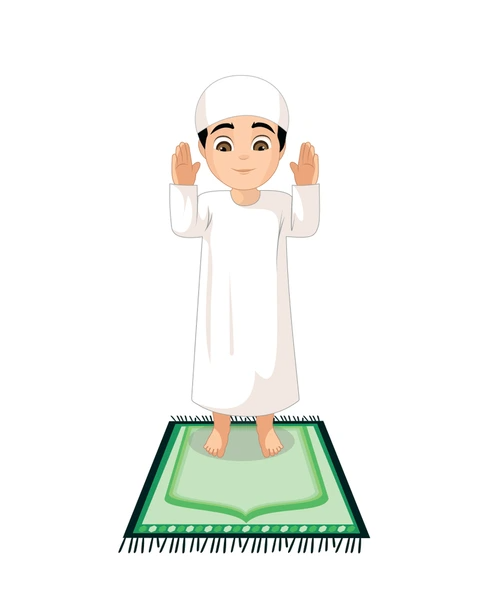
- Qiyam (Standing): In this position, recite Surah Al-Fatiha followed by any other surah or verses from the Qur’an.
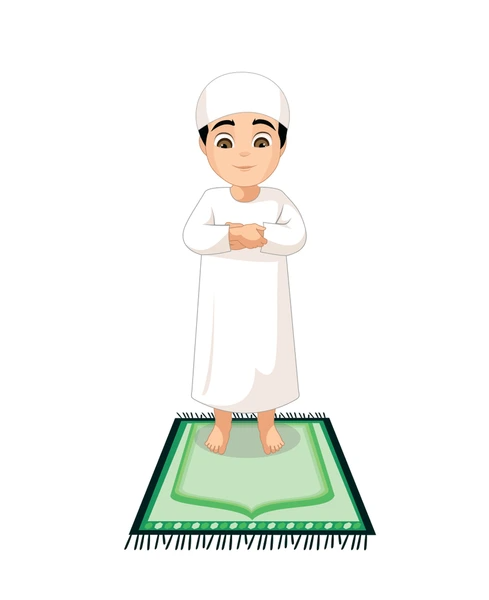
- Ruku (Bowing): Bend at the waist with your hands on your knees and say “Subhana Rabbiyal Azeem” (Glory be to my Lord, the Most Great) three times.
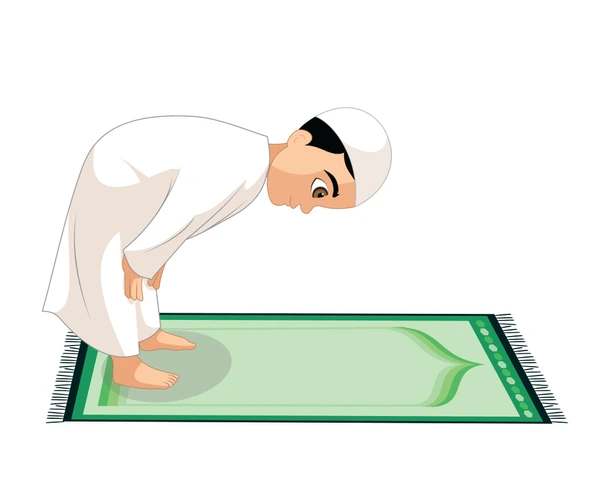
- I’tidal (Standing Upright): Stand back up and say “Sami Allahu liman hamidah” (Allah hears those who praise Him), followed by “Rabbana lakal hamd” (Our Lord, to You belongs all praise).
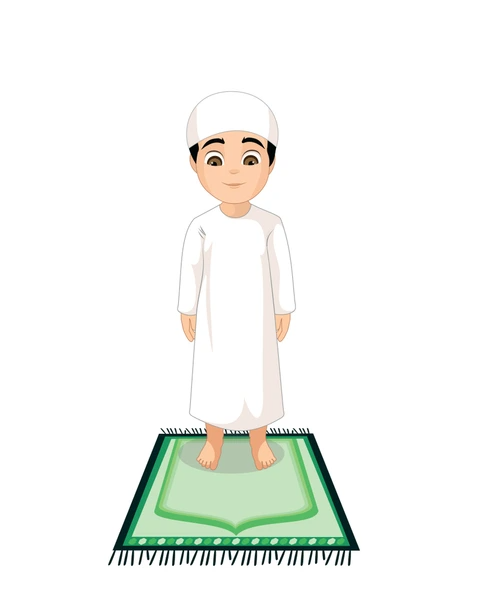
- Sujud (Prostration): Go into prostration and place your forehead, nose, palms, knees, and toes on the ground. Say “Subhana Rabbiyal A’la” (Glory be to my Lord, the Most High) three times.
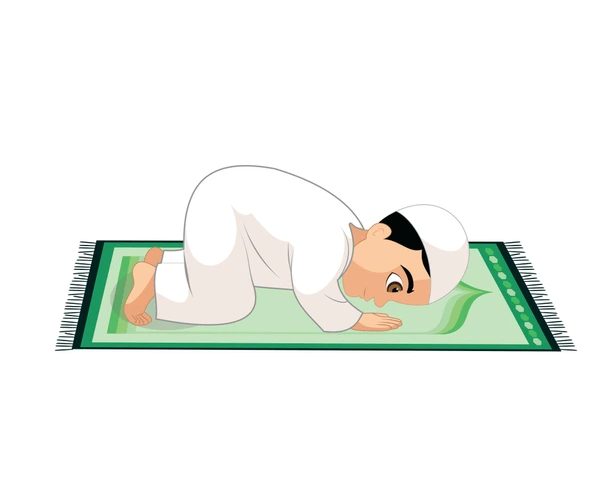
- Jalsa (Sitting): Sit up from the prostration briefly before going back into Sujud a second time.
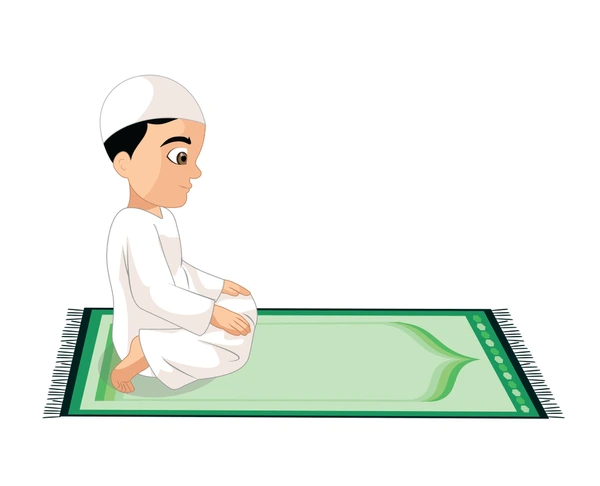
- Tashahhud (Sitting and Reciting): After the last Sujud, sit and recite the Tashahhud followed by the Salawat (sending peace upon the Prophet Muhammad, PBUH).

- Tasleem (Ending Salah): End the prayer by turning your head to the right and saying “Assalamu Alaikum wa Rahmatullah”, and then to the left.
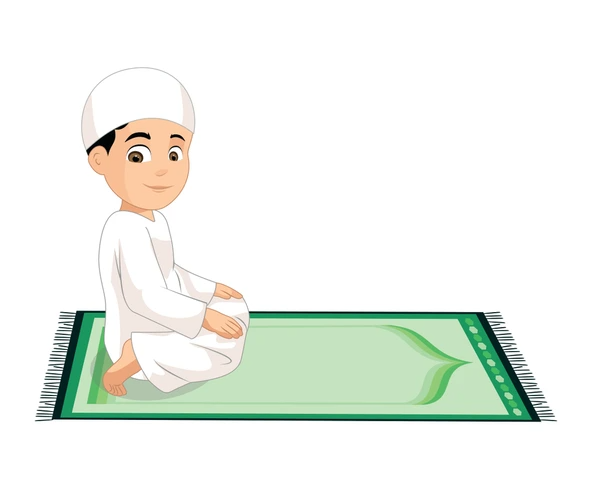
Learn: How to Pray Salah for Men
Read: How to Pray Salah for Women
The Conditions and Pillars of Salah
For Salah to be valid, several conditions must be met:
- Purity: You must be in a state of Wudu or Ghusl.
- Proper Timing: Salah must be performed within its designated time.
- Covering the Awrah: Men and women must cover specific parts of the body during prayer.
- Facing the Qiblah: Salah must be performed while facing the Kaaba.
- Intention (Niyyah): A sincere intention must be made before starting Salah.
The essential pillars of Salah include:
- Takbir al-Ihram
- Recitation of Al-Fatiha
- Ruku
- Sujud
- Tashahhud
- Tasleem
Common Mistakes to Avoid in the Prayer
- Neglecting the correct posture in Ruku or Sujud: Ensure that each position is performed properly with the body at rest.
- Rushing through the prayer: Take your time and reflect on the meanings of the words you’re reciting.
- Not focusing on the prayer: Salah should be performed with full concentration and humility.
- Incorrect pronunciation of the recitations: Ensure that you’re pronouncing the words of the prayer correctly.
By understanding and applying these principles, beginners can quickly master the prayer and perform it with sincerity and devotion.
Our online Quran school provides comprehensive courses ranging from beginner to advanced levels, covering Quran recitation, Tajweed, and Tafseer. As a foundation, we offer a complimentary Noorani Qaida course, designed to prepare students for further studies, including Quran reading, Tajweed mastery, and Quran memorization.
Sign up for a free trial!


